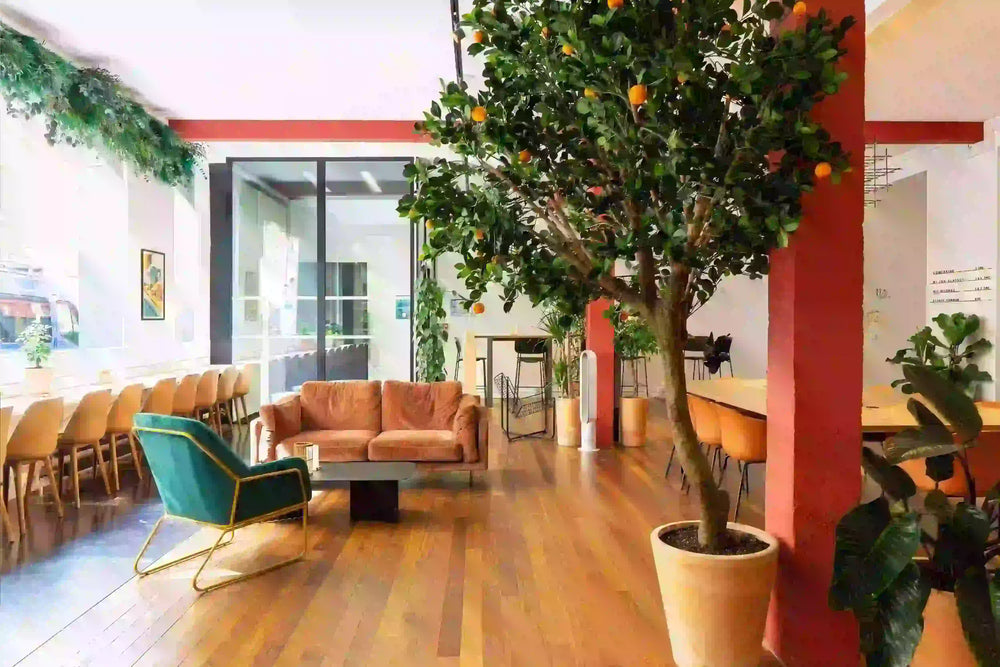
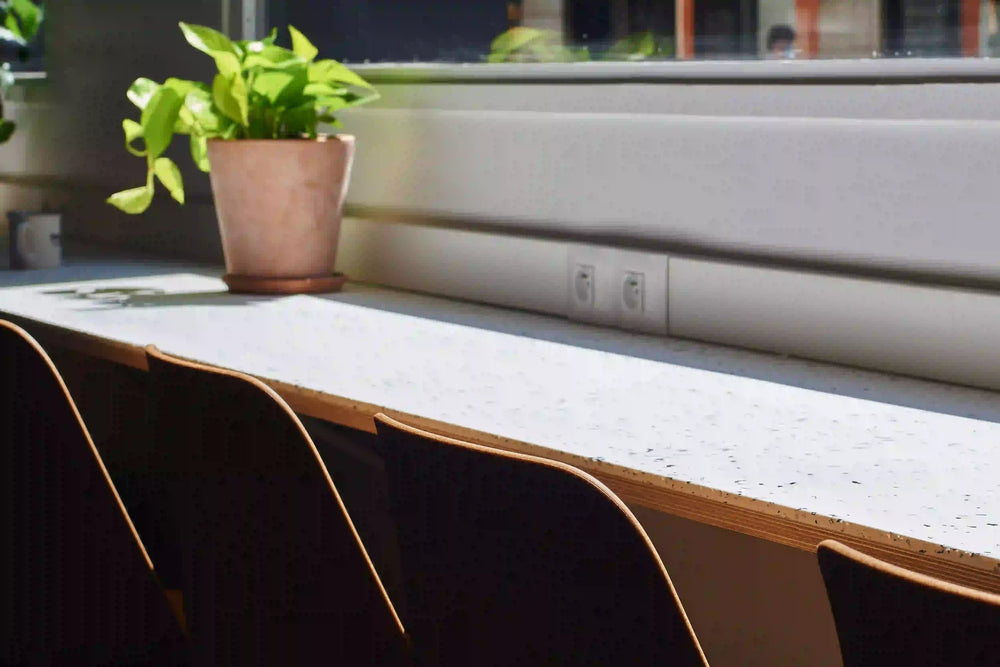
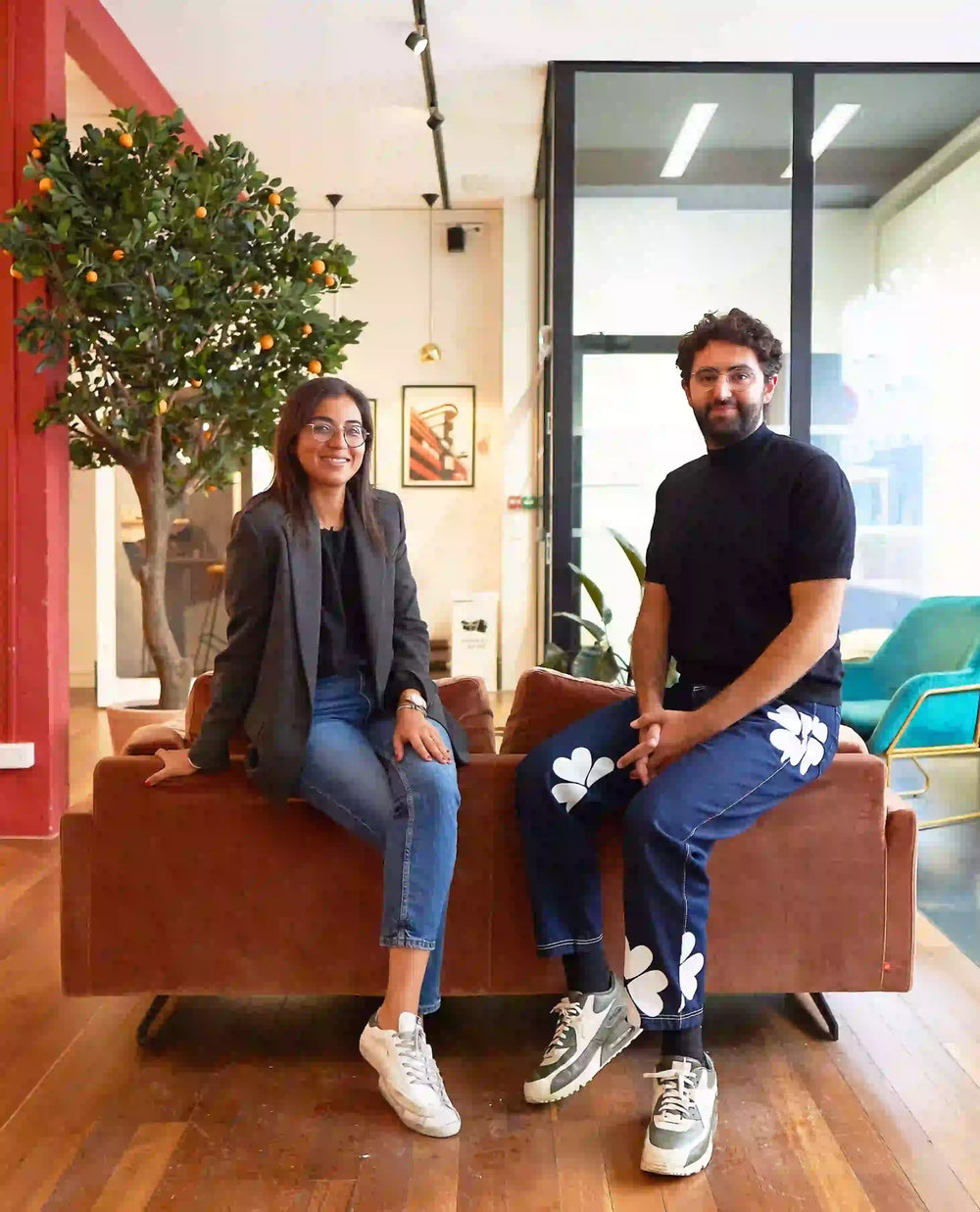
Can you introduce yourself ?
Meryem - I am Meryem Benabderrazik, co-founder of Imagin' Office which I created with Gaël Lebreton eighteen months ago. Imagin'office was born in a particular format: an entrepreneurial spin-up within the real estate group ICADE. We went from a team of two to fourteen people in the space of just eighteen months, deployed on five different sites in Île-de-France and Lyon.
We have an ambitious roadmap with the desire to develop more than twenty sites by 2024. The idea is to be able to offer a network of coworking workspaces, intended for both ICADE customers, who constitute our main source of acquisition, than to a new target clientele. In this sense, we address both large accounts, freelancers and startups.
Michel - I founded Design My Camp, a global design studio to design all areas of brand expression: physical (office design), digital (webdesign), and graphics (Art Direction and branding). It is a collective studio with a 360° vision of the customer experience.
I have a double Marketing and Creation hat, which allows me on the one hand to analyze the brand, its values, the message it conveys at the level of the spaces, and on the other hand to decline this in moodboards, in choices materials, colors, shapes, textures, light, etc. That's what I did for Imagin'Office.
How do you meet the needs of this diverse typology of coworking customers?
Meryem - We have a mixed clientele, which varies depending on the location. We adapt our different offers as much as possible so that they are as much in line as possible with the target. This response is made through the development of spaces on the one hand, and the formulas marketed on the other.
For example, our offices at La Défense vary greatly in size, ranging from two to eighteen places. The objective is to be able to meet the needs of companies of different sizes in these same offices.
At the same time, we offer coworking in each of our spaces, which is more suitable for freelancers, both from a budget point of view and from a usage point of view.
Usage remains essentially monthly. But we also offer packs of hours of meeting rooms, intended for project leaders in business creation. The latter do not necessarily need to have access to the office every day, but wish to welcome their customers or pitch their concept in conditions that allow it.
Michel - In terms of space planning, there are indeed a lot of uses to integrate. The space must be functional, user-friendly and flexible. During the day, the place welcomes people who must be able to meet, have a coffee, or work alone, in silence. In the evening, the place sees pitches taking place, meetings, events. For example, there are two large TVs on wheels in the main room to meet this need for modularity.
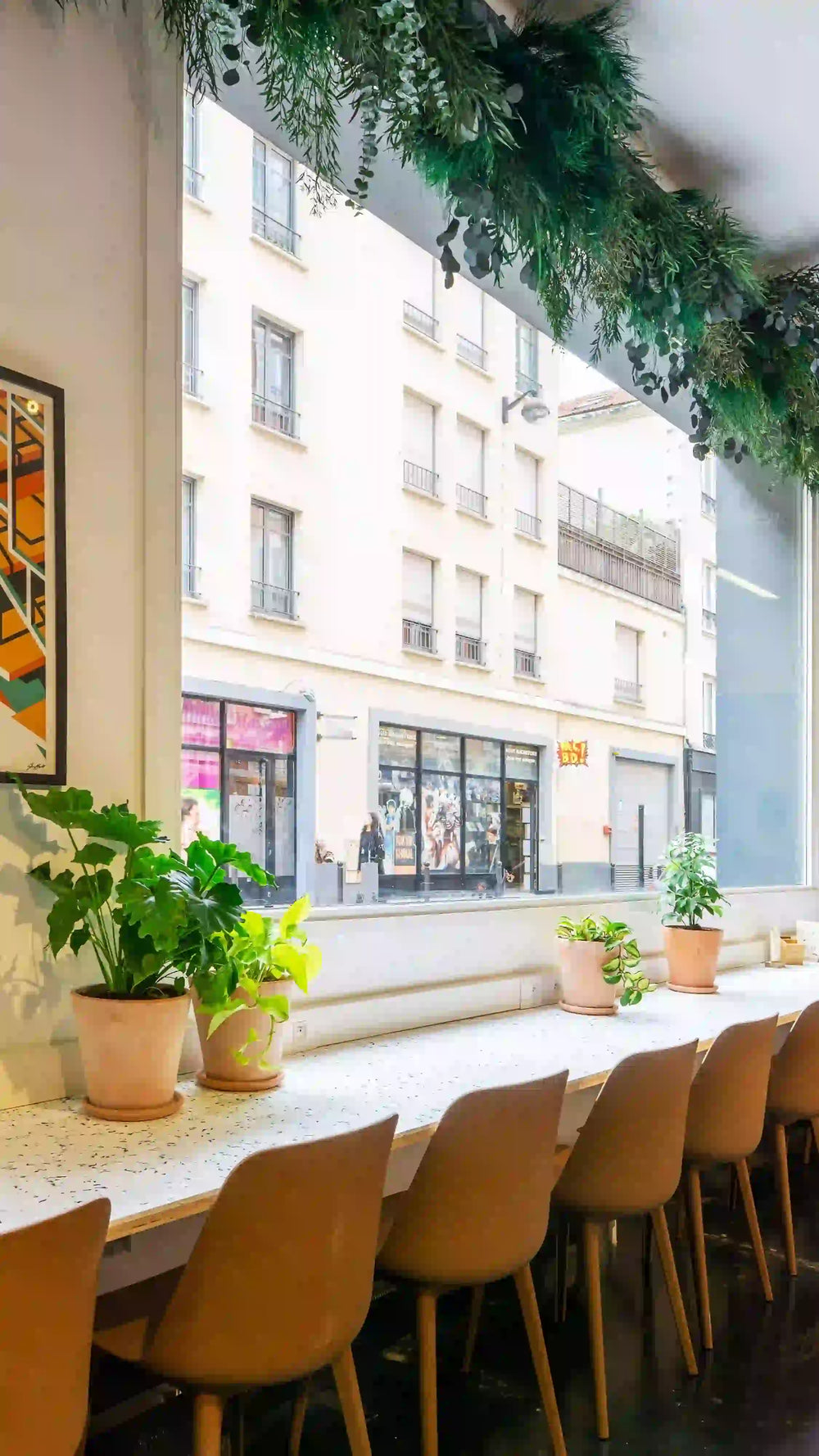
Explain to us how did you think about the layout of your spaces?
Meryem - Before our clients arrive, we have to decide on configurations with predefined office sizes. However, we are able to adapt these configurations to the needs of our customers and to be able to accommodate all sizes of companies in our spaces. We have chosen modular partitions that provide the acoustic comfort necessary for a private business office and that we can adjust on demand to allow a business to expand there in peace. Offices should not be a brake on the growth of a company, which is why we are changing our layouts to suit their needs for as long as possible. It is these additional modularity services that allow us to adapt to the customer's request. At Bastille, we have opted for private trays to ensure the comfort and confidentiality of each client. Of course, the common areas are generous with more than 250 m² dedicated to exchanges on the ground floor of the building.
Michel - There is also a segmentation of space. Here, for example, a reservable meeting room that can accommodate up to twelve people, and a variety of seats. We have installed standard height tables, a smaller 60 centimeter deep shelf that runs along the bay window, an acoustic cabin , high chairs, low chairs, armchairs, sofas, coffee tables. People meet there whatever their needs: you can receive a client by sitting on a high table with a latte and chat in peace, reserve the meeting room if you have a presentation to make, or even work alone on the tablet and enjoy the view outside.
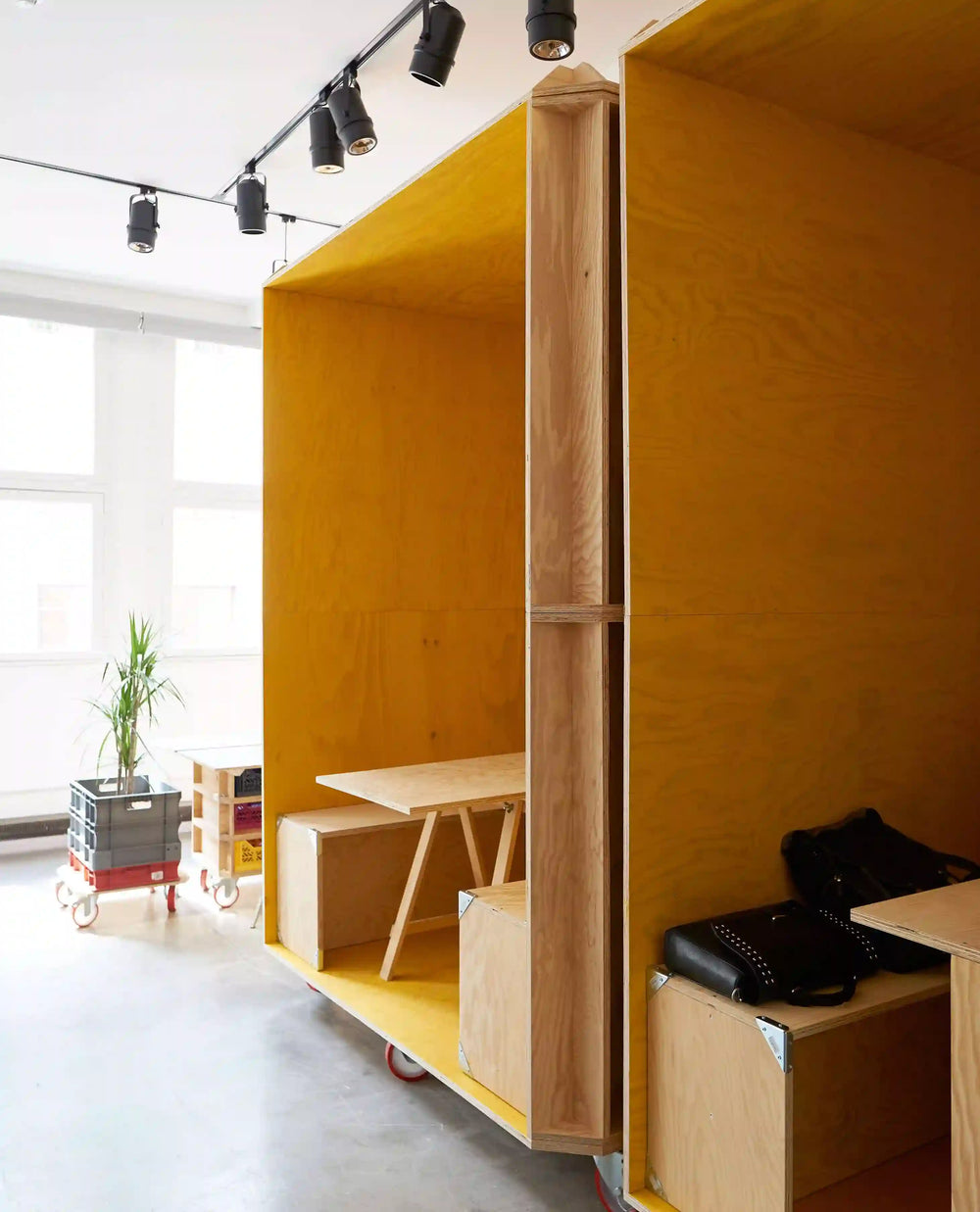
These are additional modularity services that allow us to adapt to the customer's request.
Describe the process of creating a coworking space? What are the different stages?
Meryem - The stages are quite short, to be able to operate as best as possible and as quickly as possible. The upstream phase is essential. We have two areas of location research:
In the first case, we identify a location and study its market. If we consider that it is mature and that it is necessary to set up there, we launch very localized searches with real estate agents and our broker partners. Each week, the latter send us rental offers, whether we decide to study them or not. We also have, and this is somewhat our differentiating factor, the chance to have a real estate group behind us: it also offers us spaces, sometimes with reduced rents. These are very often recent buildings in which we can integrate upstream, with the aim of designing them according to our requirements.
The second line of research is when we have a specific request from a client. This was for example the case on this site. We co-conducted the research with one of our clients: he told us about an area, a type of building and we visited the location together.
Then, in the design phase, we work with architects and interior designers. Generally, conception is spread over a period of one to two months. Finally, there are six to eight weeks of work. We have very short deadlines on construction sites. Here, for example, the schedule was six weeks of work.
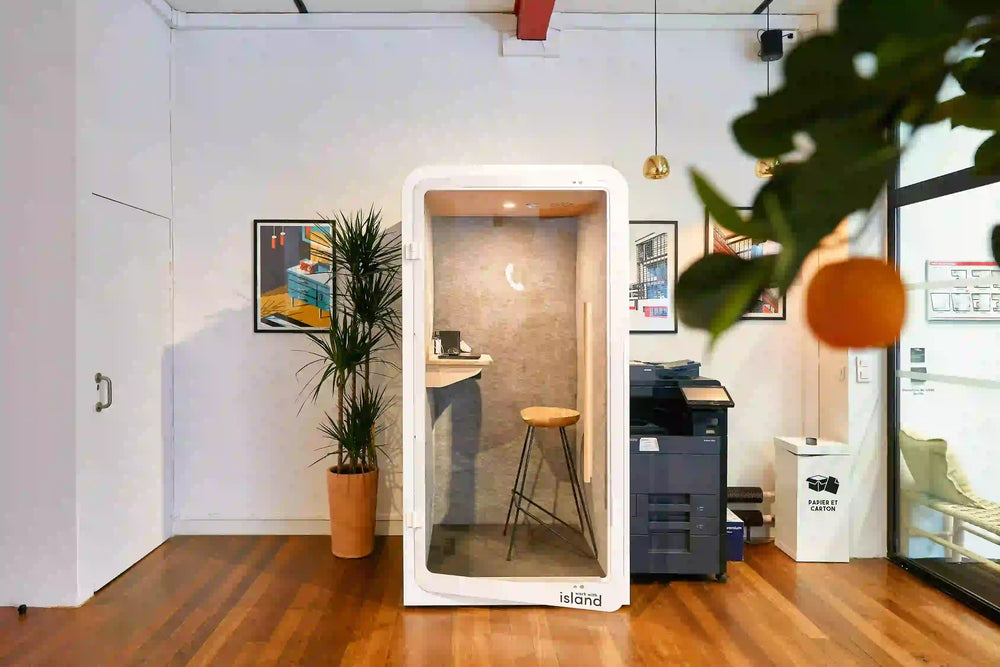
We see more and more coworking developing, what makes Imagin'Office special?
Meryem - The eco-responsible aspect is for us a really differentiating axis. This is a very important issue, which is why we wanted to go back to the genesis of coworking: pool resources, pool spaces, and implement, through truly committed actions, these eco-responsible values. We are convinced that with two equivalent spaces, a customer will be more aware of the eco-responsible subject. But it's not just marketing. The challenge is to have real actions put in place, both in the design and in the operation of our places. We have a CSR manifesto, which constitutes the specifications for each of our sites and which we are in the process of industrialising.
We strongly encourage reuse. Here, there is a complete floor that has been made 100% with recycled materials and furniture. A glass roof, from another building and reused, was redone to measure. The furniture was also found and chosen second-hand. This is also why we work with Work With Island, it is because we share these same values.
Michel - This space in Bastille is a bit like the Parisian Flagship of Imagin'Office, which must be extremely revealing of these
values there.
In addition, the challenge was to create its own identity, a very branded and “premium” universe. When you enter this place, you immediately know that you are entering Imagin'Office, not the neighbour's. The universe is both industrial and warm, it was a real challenge. Because often, the industrial (the collective image that we have at least) is not necessarily very warm and benevolent. We added a layer of human warmth, combining rather warm colors and textures.
We wanted to go back to the genesis of coworking: pooling resources, pooling spaces.
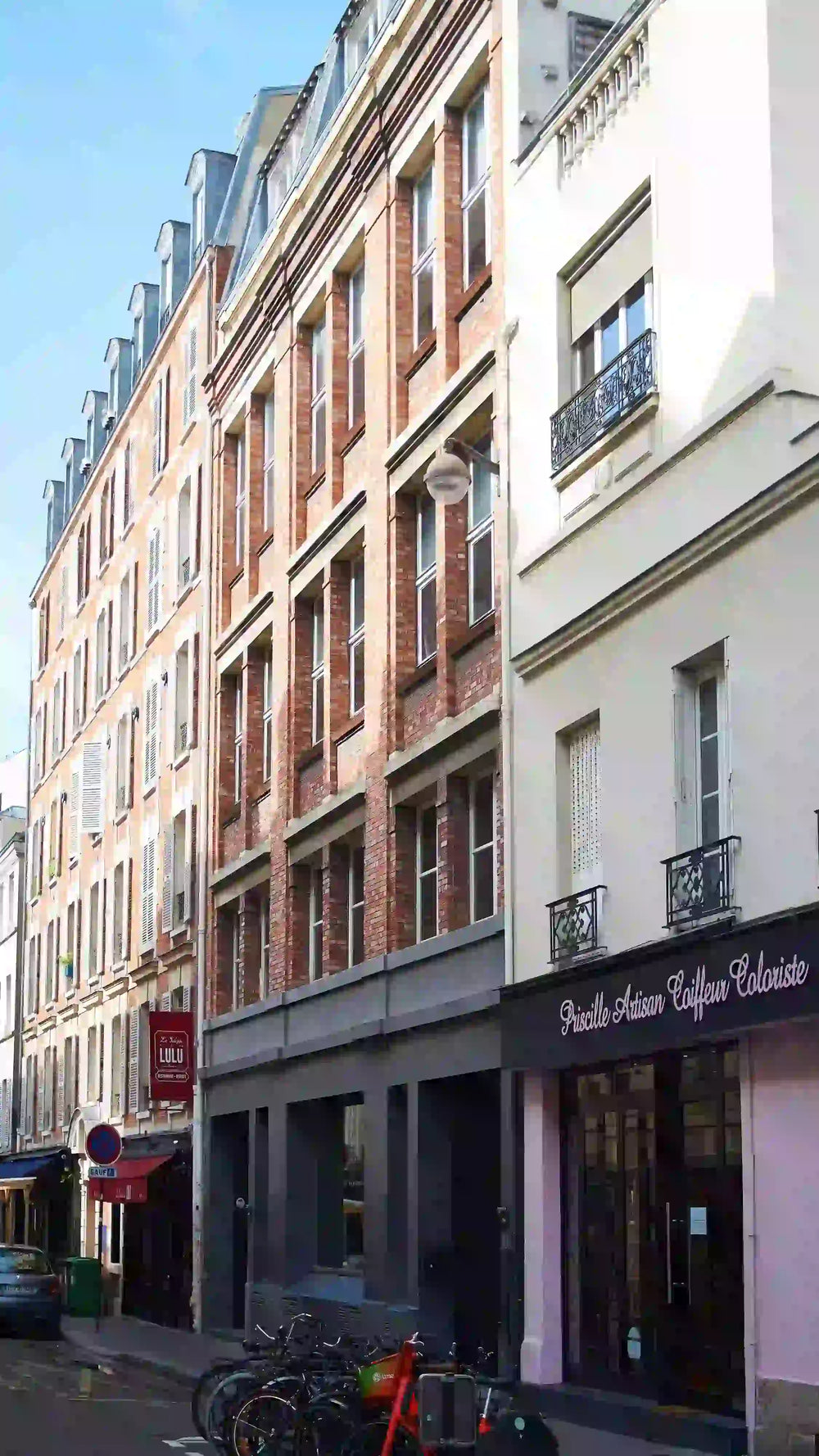
Tell us how you shaped the spaces in the image of the strong identity of Imagin'Office?
Michel - The first thing I do when I arrive in a place,
it is to observe the materials, the light, the existing. What makes up this place when it is laid bare. Once this is understood, the concept will resonate with the existing. This is what I find very beautiful.
This space in Bastille is sublime, with a red brick facade, lots of black metal parts. Even the radiators belonged a lot to this industrial style, a little chic. The tone was set. It seemed obvious to follow this very aesthetic common thread.
It is then a subtle game between textures, round and angular shapes, colors and lights. On the ground floor there is a very high ceiling. We therefore painted the beams and pillars in brick red, quite intense but not garish, so as to highlight this beautiful height.
In terms of textures, we have chosen fairly soft, warm textures. And rather round shapes at the level of the seats, counterbalanced by more angular shapes for the tables and the lamps. For example, there is a luminaire in a reinforced concrete structure suspended from the ceiling, above the large convivial table.
We obviously chose a lot of black, in order to install this industrial side, without skimping on warm colors like intense red, Terra cotta, and the beautiful walnut-finish parquet on the floor, which also contributes to this warm side. The ground floor has a very beautiful bay window overlooking the street. The place is built around the main source of light which is this bay window, which plays the role of a core.
An eight-meter shelf of pavement, recycled from seabed bottles, runs along the bay window. It is equipped with about fifteen chairs also in recycled plastic. Just behind stands a large orange tree with a 2-3 seater sofa, an armchair, a black metal coffee table. At the back, a large convivial table with its reinforced concrete suspensions. Everything is arranged so that end users can feed as much as possible from this light emanating from the outside.
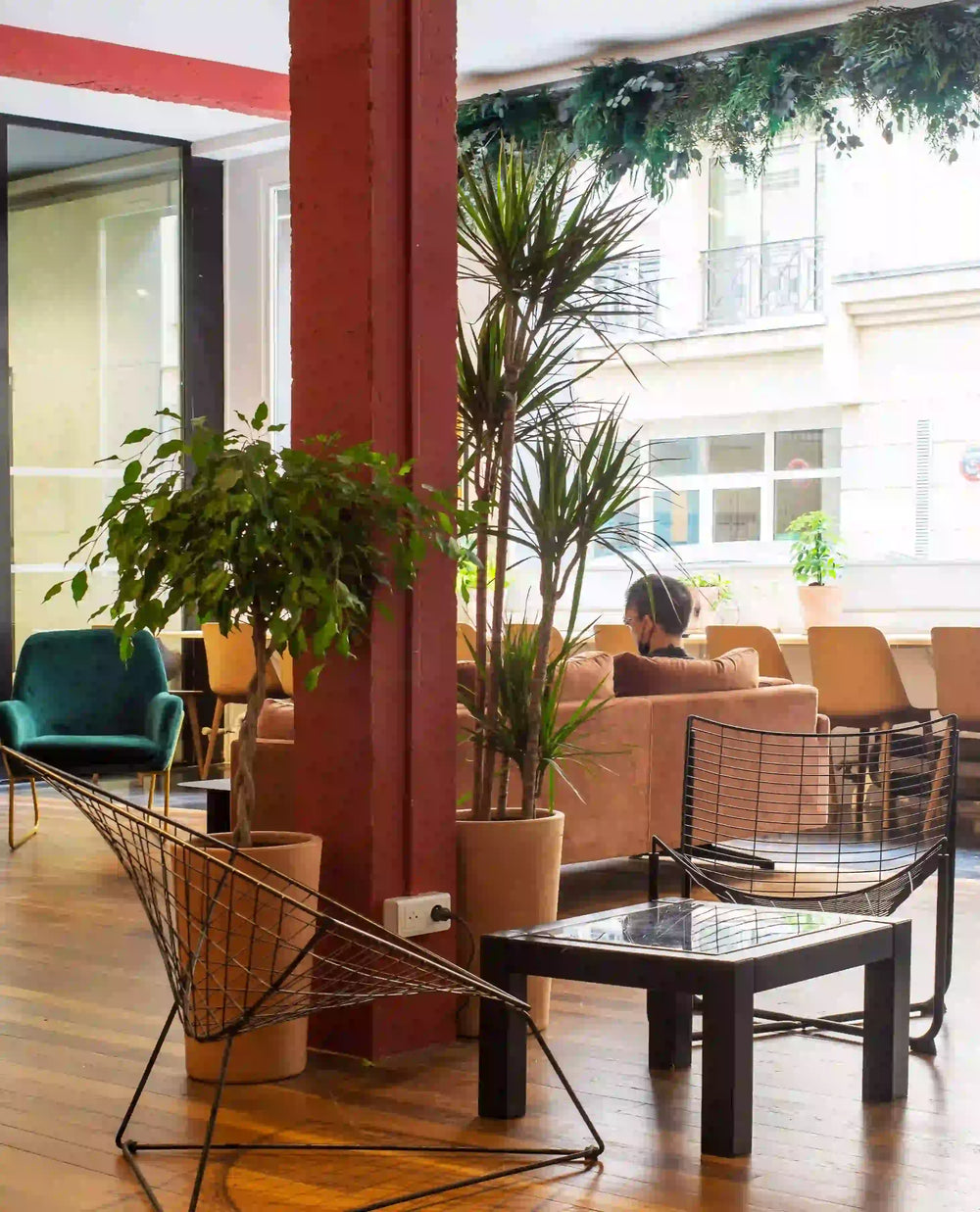
The first thing I do when I arrive in a place,
it is to observe the materials, the light, the existing. What makes up this place when it is laid bare.
How did you choose the furniture?
Michel - I take care of the aesthetic concept of the furniture, while sourcing in the most eco-responsible way possible. We chose a shelf almost 8 meters long, made of recycled plastic with FSC-certified wooden plywood. The vast majority of chairs are also made of recycled plastic.
In addition, we have reused furniture: a coffee table and two beautiful black metal armchairs from Selency. The kitchen comes from IKEA.
For me, eco-responsibility is not just a fashion story. I have that DNA in me. I have always worked with furniture made in France or Italy. I am not at all for transport that has a negative impact on the environment. The richness of the offer and the responsiveness of the teams are also important elements in the sourcing of furniture.
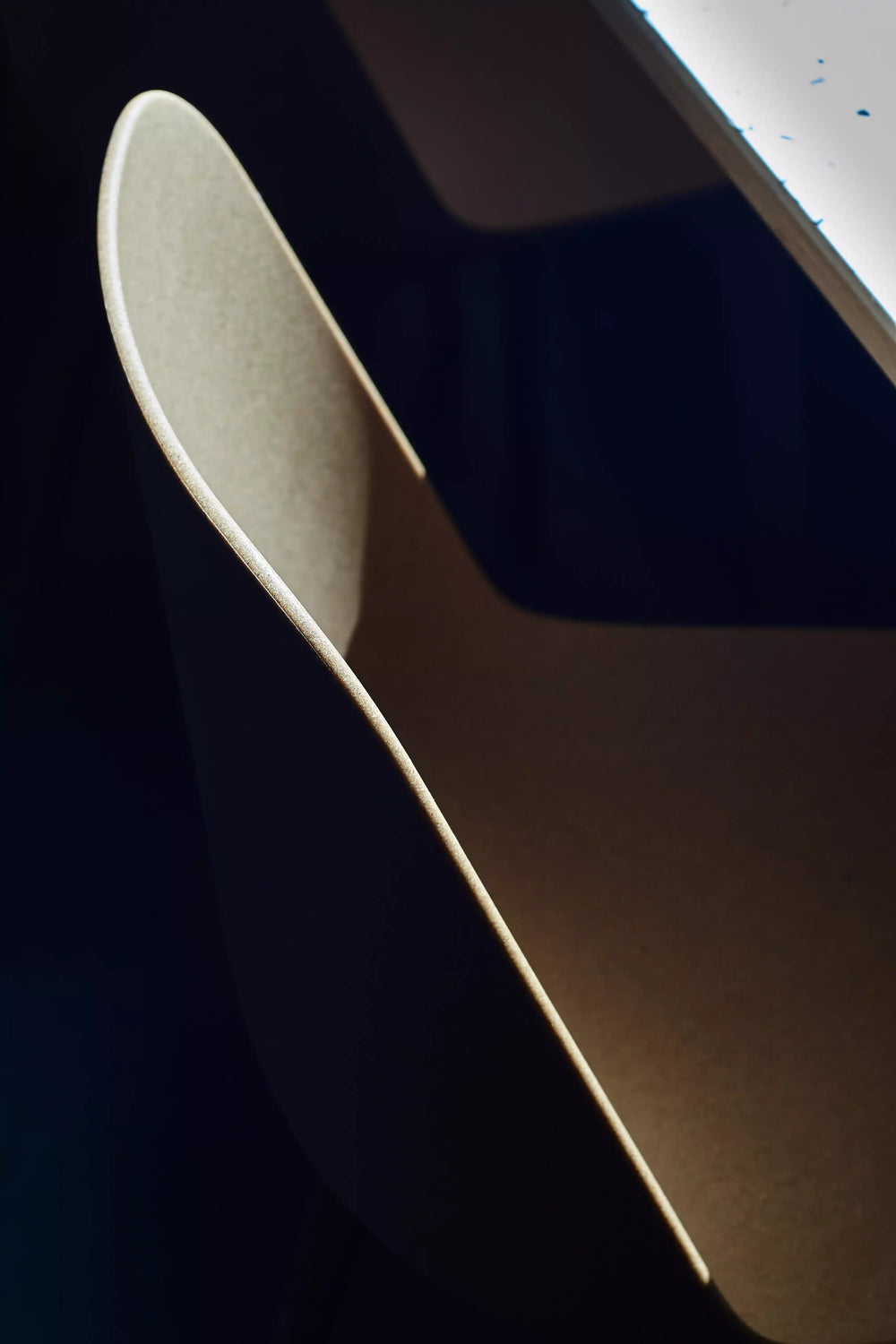
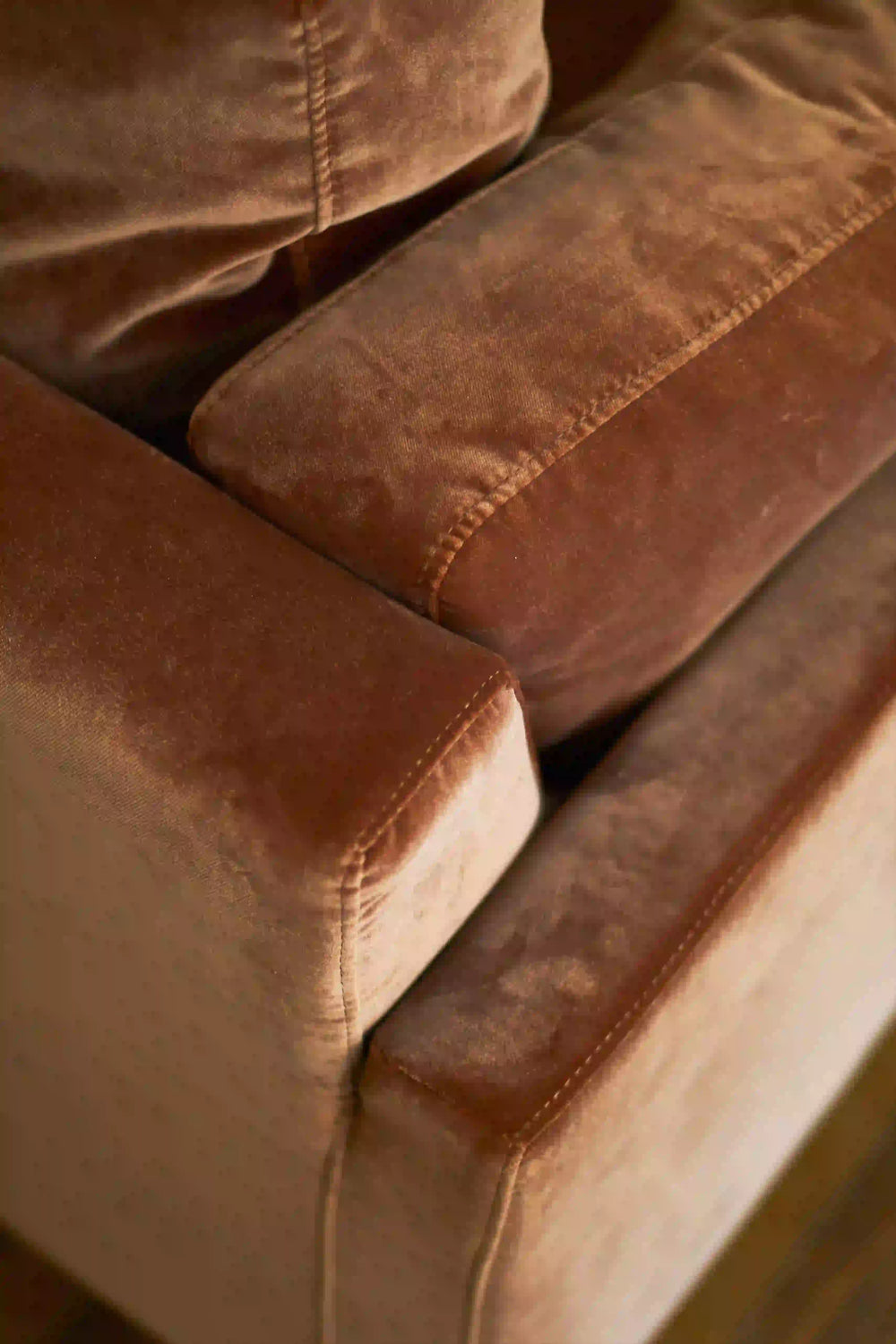
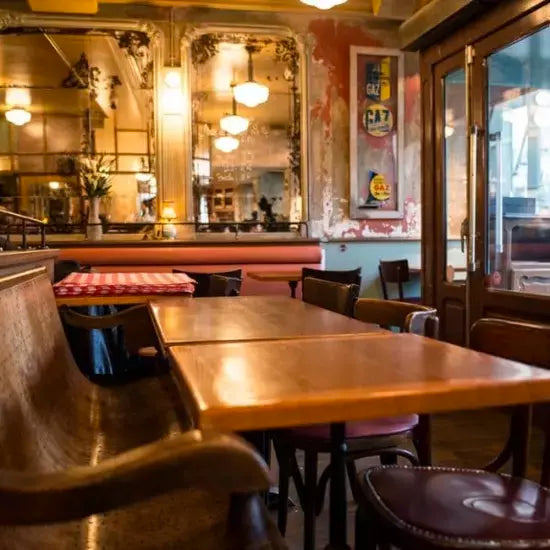
What are your favorite addresses around this space in Bastille?
Meryem - There are plenty! Bastille is simpler than La Défense (laughs). The famous Café des Anges around the corner, and the bar Le Chat Ivre not far away.
This is our first Parisian location for Imagin'Office, so we will be able to discover the district.
Michel - Amici Miei , rue Saint-Sabin 5 minutes walk away, an Italian restaurant that makes excellent pizzas, and the environment is very friendly.
Do you have a different approach depending on the coworking space?
Meryem - For the moment, we have an approach that is not standardized. It may be tomorrow because we have a challenge to shorten the deadlines as I explained. But today, we have chosen several architects and interior designers. We start from the immediate environment in which we are located to draw inspiration from it and decline the aesthetic concept of the place, as Michel explained.
To give another example, in La Défense, our building is a high-rise tower which was originally intended to be a hotel and never was. We were therefore inspired by this history to decline the whole concept that we baptized “The Lodge”: a kind of business hotel, with many hotel services.
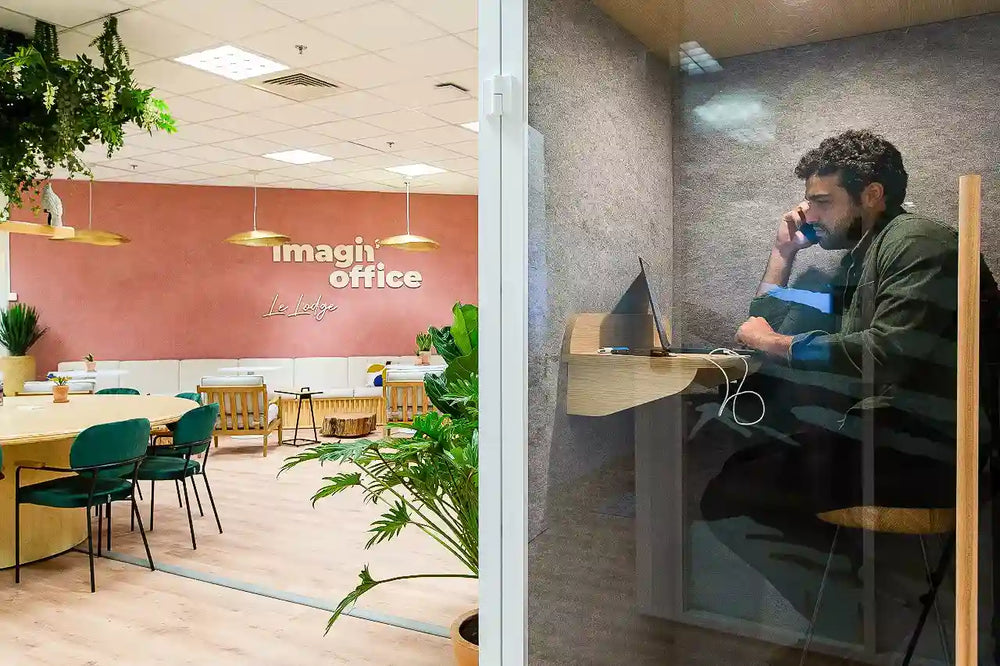
Can you tell us more about the concept of corporate hospitality?
Meryem - We take care of all the event part, thanks to rooms that can accommodate from ten to ninety people depending on demand: theater, workshop, or even a recording studio that we are developing. . Our desire is to offer a turnkey service. We offer all food services, coffee, meal trays and cocktails, in upselling so as to be the single point of contact for our customers, the "concierge" of their professional events. We are offering this service at La Défense with the configuration of larger rooms, and tomorrow we are going to duplicate this offer on all sites.
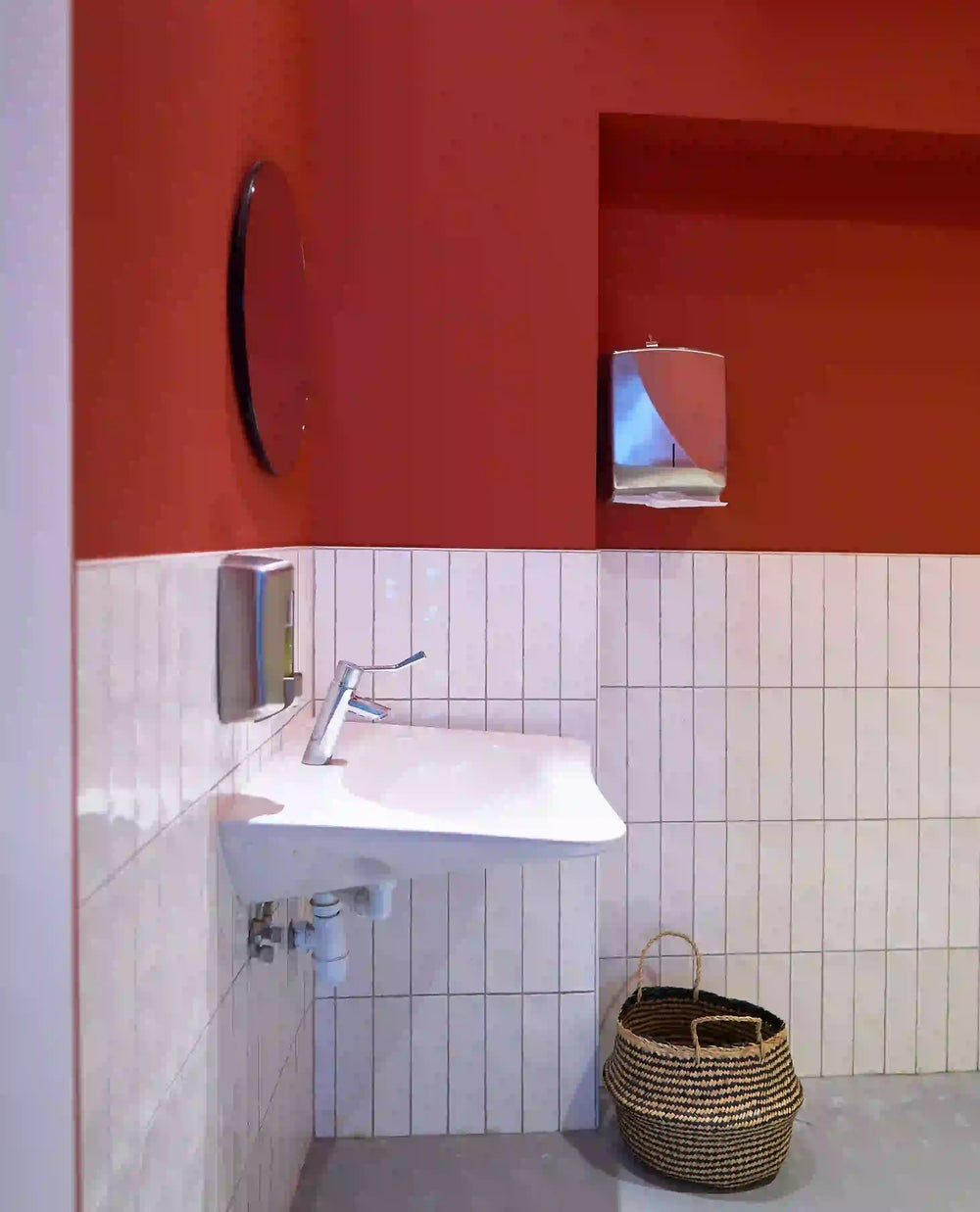
Who are the customers of these hotel workspaces?
Meryem - It's a very punctual type of customer: on time,
half day, full day. The sales cycle is much longer
short because the needs can be addressed the day before for the next day. The challenges of these customers are therefore very different: the requirements and expectations are much higher for this type of product. This is due to the more short-term nature of the relationship we have with them. We have to be excellent at every event. There can be no missing out on a half-day service, because that's what the customer will keep in mind. Just like events, it is a know-how.
It is possible that relations will be forged in the medium term, with
customers who return regularly: they benefit from a
experience, then several up to come every day. His clients
have a more global perception of our know-how and service
that we give back to them.
Why offer a recording studio within workspaces?
Meryem - I think it's an asset that will meet with great success in the coming months. Disseminating content will become a key issue for brands. The technique must adapt in order to be able to execute it in good conditions and concentrate on its content.
We are therefore testing the studio in Bastille. This is a service that we hope to offer as a fully-fledged offer at Imagin'Office.
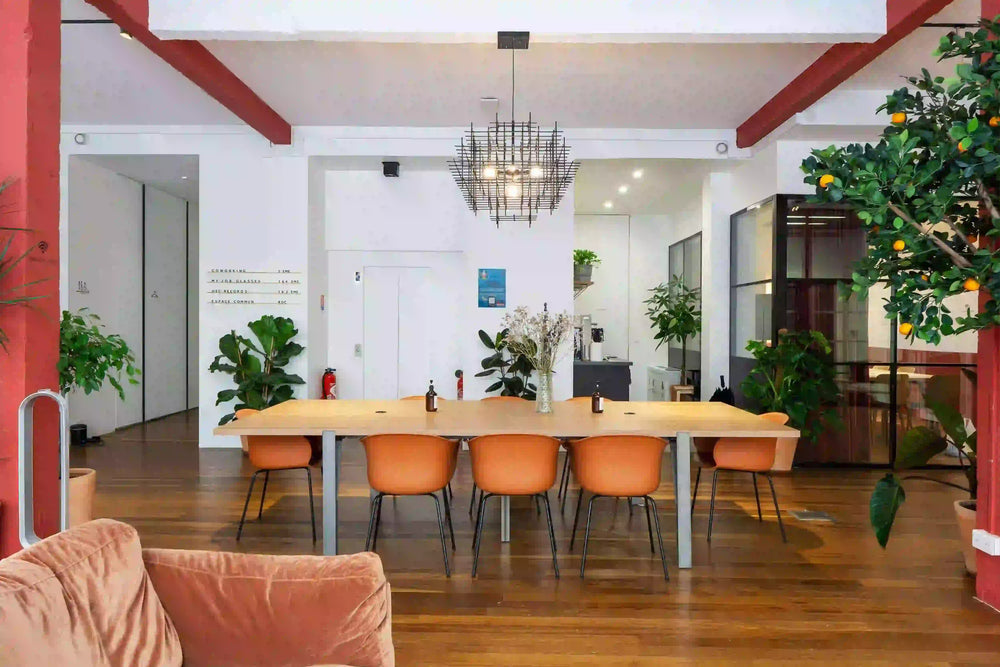
You recently opened new coworkings in cities like Puteaux or Villeurbanne: is this a desire to develop in medium-sized cities? Is the choice of Bastille, in the very center of Paris, an exception?
Meryem - Our desire is to develop in all regions. We are initially targeting regional cities: Bordeaux, Lille, Marseille. Then we target the first crown. The operating model is obviously more complicated in central districts with very high rents, which leads us to study cases in outlying towns with moderate rents.
There is also less competition in these medium-sized cities, as the coworking offer is already significant in Paris. However, to develop there, you must have the means and the human resources to manage in a delocalized way an activity where the human presence is essential.
We have thus noted a less strong presence of coworking in these areas, even though the demand exists. Very often, the need of our customers, especially for large accounts, is to be able to access a single network of sites. Large companies are often located in Paris, in the first ring, but also in Lyon and Marseille at the same time. Companies want to be able to access all of these sites. The network effect is essential today.
There is also an emerging demand from working people who no longer necessarily need to travel to their intramural workplace, with the generalization of teleworking. However, these people need access to a network of sites very close to the outskirts of Paris in order to be able to continue working properly. I am convinced of the importance of having a location that is not only central but also on the outskirts.
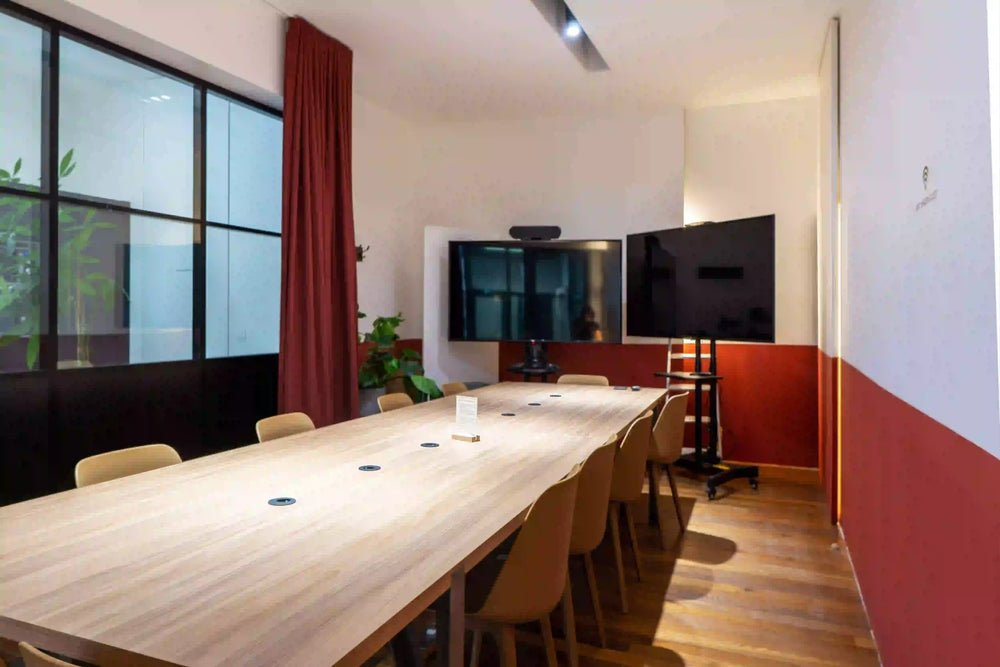
What are the plans for the Imagin'Office suite?
Meryem - We are going to continue our establishment simultaneously intramural and peripheral. We are still looking for centrality in order to cover Paris as it should be. The opening of the Saint-Lazare hub should take place in the coming months. The next step will be in Montparnasse, at least we hope for a left bank location.
Another type of development identified is to join line 1 of the Paris metro, being present in La Défense, Neuilly and Bastille. The objective would be to open a new site between Neuilly and Bastille: in Chatelet, Palais Royal, or near the Etoile.
The current context forces us to reinvent ourselves. How do you view the evolution of Office Design in the years to come?
Michel - As a designer, we respond to a need, to a “pain point”, taking into account the psychological, sociological, cultural, human, financial and material dimensions. We find that the answer is not unique across companies. This is what is exciting in the profession: considering all these analytical prisms and making them converge to lead to an optimal solution.
To do this, our job is made up of permanent monitoring. Not only trends but also from a sociological and behavioral point of view. The challenge will be to understand how individuals are perceiving their work and their mode of organization. What are the mechanisms that will be triggered in the coming months, in the coming years?
Today, we all agree that the workplace will become hybrid: depending on the company, background tasks can be carried out from home and collaborative tasks will be carried out in the office. What interests me personally is to see all the particularities that will emerge from this observation. I'm not sure it's going to be that simple in application.
From a psychological point of view, many business leaders are not necessarily for teleworking in France. There is still a split, I believe, between employers and employees. Even if, on a personal level, I have hope and I fully defend the cause of employees who want more days of telework. What I see in the field is that there are many more particularities, specificities specific to the culture of each company. I find this fascinating because it is a subject that remains complex and highly cultural. I'm very curious to see what all of this will lead to.
Interview by Zoé Kasprzak
Photographs taken by Pénélope Romand-Monnier











